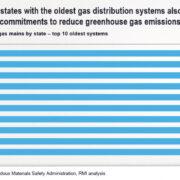As of 11:48 AM EST, November 10, 2020, there were almost 51.5 million cases and about 1.3 million deaths from COVID-19 worldwide, with the United States on the top-five list with almost 10.5 million cases, about 245,000 deaths, and 15,753 new cases that day, followed by India, Brazil, Russia, and France. The Philippines had around 400,000 cases, about 7,700 deaths, and 1,350 new cases that day.
A good news amidst lockdowns and mask mandates in some countries around the world is the announcement last Monday from Pfizer-BioNTech that their new vaccine against COVID-19 is more than 90 percent effective. There were more than 44,000 who participated in the late-stage clinical trial. The annual Flu vaccines are only 40 to 60 percent effective. Creation of vaccines usually takes 2-5 years, but this amazing feat this time was expedited by the Trump administration, which partly subsidized the development in order for all people in the United States to get the vaccine for free. It will be late this year or early next year before it becomes available for the public. Priorities will include healthcare workers, vulnerable seniors, those immune-compromised, the military, police, firemen, all first responders. In the meantime, let’s continue to use eye goggles, good facemasks properly, and do social distancing, with vigilance and a bit of healthy paranoia. Remember, someone positive for COVID-19 could be healthy-looking (but infectious) before symptoms develop. The corona virus (SAR-CoV2) virus enters through the mucosal (moist) surfaces of our eyes, nose, and mouth, and any break in our skin.
* * *
A reader emailed me asking how I, as a cardiac surgeon, cope with the COVID-19 pandemic to avoid boredom and depression. Firstly, accepting the situation and reality is a must. As a retiree, I have delved into hobbies I could do at home. Besides writing a weekly health column for a Philippine national daily in Manila and here in the USA, I also do a lot of gardening, caring for my fruit trees (persimmon, apple, orange), lemon, pepper, upo, ampalaya, a variety of roses, and feeding humming and other birds. I have learned how to make wine, ice-cream (ube-macapuno, lanka, and any other flavor), bake bread, donuts, kutsinta, and cook shrimp scampi, sinigang, kare-kare, etc. Like my Dad, I enjoy cooking also. I have also been reading a lot, watching historical, documentary films, and movies. And time flies when you are busy. This keeps me productive, entertained, and denies depression a chance to conquer me. I go out only when needed, and always with a cap, goggles, 3-layered mask, and gloves, because as a senior, I am more vulnerable to COVID-19. Whatever the situation is, life could always be wonderful. It all depends on you and your attitude. Waking up each morning is a blessing. When the day is gloomy, bring your own sunshine.
* * *
Bariatric Surgery (surgery for obesity) may also confer the metabolic and health benefits to people who are only moderately or mildly obese, or even nonobese individuals, according to several clinical reports.
Heretofore, the National Institute of Health (NIH) guidelines recommended bariatric surgery “only for patients with a body mass index greater than 40 kg/meter square or those with BMI greater than 35 with type 2 diabetes or other obesity–related comorbidities” (co-existing medical conditions). Google: How to calculate BMI.
Dr. Jenny J. Choi of Columbia University Medical Center, New York, and others are challenging the NIH guidelines, noting that new studies have “consistently shown marked benefits of obesity surgery” in patients with lower BMI, even among those who are nonobese, like the potential for reversing diabetes type 2 and concomitant improvement in co-existing morbidities such as hypertension, sleep apnea, hyperlipidemia, stress incontinence, gastro-esophageal reflux, and even depression.
The minimally invasive laparoscopic adjustable gastric banding (LAGB) is the procedure recommended for moderate to mild obesity, and the gastric bypass for the morbid obesity.
The prevalence of metabolic syndrome of 38% has dropped to 3% at 2 years among those who had LAGB, compared to 24% in the medically treated patients. With the mean BMI of 33.1, the banded group showed a drop in their BMI to 25.8 in 2 years. The mean fasting blood sugar dropped from 207 mg/dL to 114 mg/dL and the HbA1c dropped from 8.5% to 5.9% at 26 months, allowing the patients to stop their anti-diabetic medications permanently. There was also a significant improvement in the quality of life.
In another study, conducted at the Texas Children’s Hospital in Houston, findings showed that obese adolescents (average age 16 and average BMI of 60 kg/m square), lost 58% of their weight in 1 year and 60% at year 2. The surgery also improved comorbidities, like 82% improvement among those with insulin resistance and 45% among those with sleep apnea. Some of these children were also cured of their type 2 diabetes after surgery.
* * *
When a chronic heavy smoker suddenly loses the urge to smoke and quits smoking effortlessly, it may mean the person already has cancer of the lungs. Why this unusual pattern happens in a certain group of long-term smokers is not clearly known.
The researchers at the World Conference on Lung Cancer in San Francisco reported that “It has been well-documented that lung cancer patients often stop smoking shortly before their diagnosis,” and even before any symptoms develop.
According to Dr. Barbara Campling, a medical oncologist with the University of Pennsylvania in Philadelphia, this has led to the medical speculation “that in some cases, spontaneous smoking cessation may be a presenting feature of lung cancer, possibly caused by tumor secretion of a factor interfering with nicotine addiction.”
In a study of 3 groups (former smokers with lung caner, former smokers with prostate cancer and former smokers with heart attack), the Philadelphia Veterans Medical Center found out that former smokers with prostate cancer had stopped smoking an average of 23 years before their diagnosis; 10 years for those former smokers with heart attack; and quitting 2.7 years before diagnosis for those previous smokers with lung cancer.
To counter fake assertions, let me make it crystal clear that quitting is NOT the cause of cancer. Smoking cigarettes (tobacco) is. We are reporting this study to emphasize once more that smoking is a proven health hazard and a highly potential killer, and that quitting now while it is still hard to quit, while the craving is still strong, is the best time to kick the habit…before cancer develops.
* * *
The opinions, beliefs and viewpoints expressed by the author do not necessarily reflect the opinions, beliefs and viewpoints of the Asian Journal, its management, editorial board and staff.
* * *
The main objective of this column is to educate and inspire people live a healthier lifestyle to prevent illnesses and disabilities and achieve a happier and more productive life. Any diagnosis, recommendation or treatment in our article are general medical information and not intended to be applicable or appropriate for anyone. This column is not a substitute for your physician, who knows your condition well and who is your best ally when it comes to your health.
* * *
Philip S. Chua, MD, FACS, FPCS, a Cardiac Surgeon Emeritus based in Northwest Indiana and Las Vegas, Nevada, is an international medical lecturer/author, a Health Public Advocate, and Chairman of the Filipino United Network-USA, a 501(c)3 humanitarian and anti-graft foundation in the United States. Visit our websites: philipSchua.com and FUN8888.com Email: [email protected]








